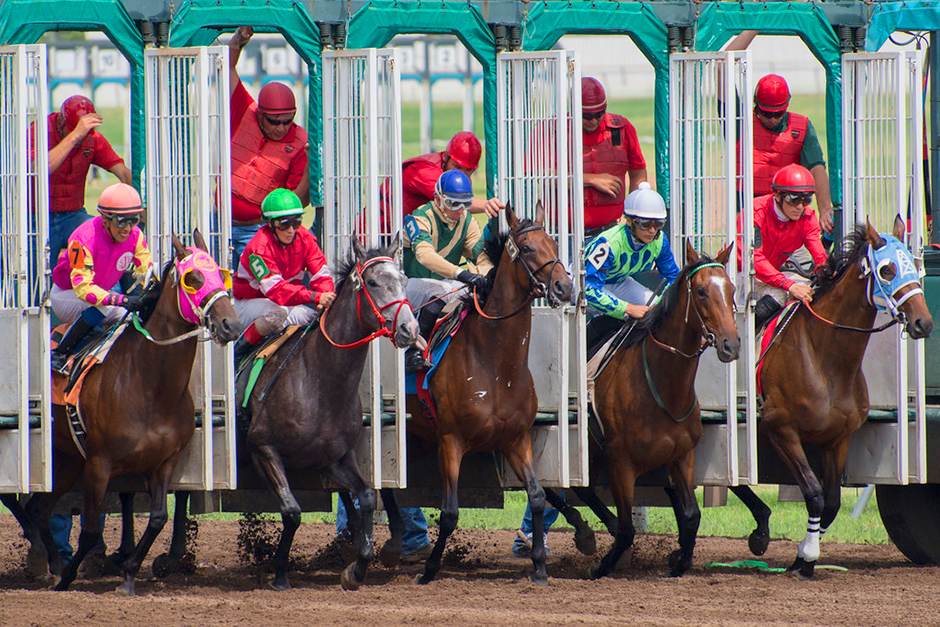Camille McArdle resigned last week as chair of the Minnesota Racing Commission, asserting that state elected officials no longer support the horse racing industry. McArdle gave a strongly worded resignation speech at the commission’s customary monthly meeting Thursday night. “This neglect, even some hostility, on the part of the state pains me greatly,” McArdle said in her statement, which was published in full by the Paulick Report, a horse industry trade publication. “It has been extremely hard to watch.” In an interview, McArdle said that it has been her impression that the governor’s office has favored gaming at the state’s tribal reservations over its two racetracks, Canterbury Park in Shakopee and Running Aces in Columbus. “I feel like the support is not going in the direction of the tracks,” McArdle said. Raymond Dehn, a member of the nine-person gubernatorial-appointed commission, said that he sympathized with McArdle’s frustration. Related: Is 2025 the year for sports betting in Minnesota? No really, is it? “Horse racing in Minnesota is struggling, and there seems to be no support from the governor,” said Dehn, a former DFL lawmaker who represented part of downtown and Near North Minneapolis until 2021. Walz’s office declined to answer emailed questions, but provided a written statement: “The governor’s office appreciates Dr. McArdle’s service to the commission and is committed to a thoughtful process to find the next chair.” Here is a quick rundown of the racetrack economy in Minnesota and what led to McArdle’s departure. What legal horse racing exists in Minnesota? The Minnesota Legislature passed a law in 1983 legalizing on-track horse betting in Minnesota. Canterbury Downs opened in 1985 and Running Aces got its start in 2008. By 2015, the state’s horse racing industry generated over $400 million in annual economic activity and supported 5, 600 full and part-time jobs, according to a 2017 report by Brigid Tuck, an economic analyst at the University of Minnesota. “Minnesota’s relative strengths in the horse racing industry allow the state opportunities to capitalize even further on its successes,” Tuck concluded. “Racetrack efforts to enhance purses and diversify product portfolios are one reason for success.” One such product is card rooms at the tracks where patrons can bet on horse races broadcast live. Another economic driver is the agriculture and veterinary services that go into horse breeding. McArdle’s own story mirrors the industry’s growth. A doctor in veterinary medicine, McArdle was working in Florida in 1985 when the Minnesota Racing Commission recruited her to become their chief veterinarian. “I was given the opportunity to write emergency rules on medications and to create processes imparting integrity into the system and the welfare of the horses,” McArdle wrote in her resignation note. “Back in the mid-80s things were somewhat haphazard at racetracks but we set up something beautiful here in Minnesota and it has only become better over time.” In 1993, Gov. Arne Carlson appointed McArdle to become a commission member. Walz named her commission chair in 2021. What conflicts led to McArdle’s resignation? There is controversy over the commission’s purpose and the competition for gambling dollars with tribal casinos. One example is the conflict around historical horse racing, which is betting on a race that has already taken place. In 2023 and 2024, the commission greenlighted Canterbury and Running Aces expanding their offerings, including putting historical horse racing screens in the track’s card rooms. But the Shakopee Mdewakanton Sioux Community sued the commission, arguing it lacks the authority to expand gaming in card rooms. The tribe contended that the historical horse racing machines physically resemble slots and were cannibalizing business at the Shakopee Mdewakanton Sioux casinos. The Minnesota Legislature, in effect, sided with the tribes in 2024 legislation sponsored by Rep. Zach Stephenson, DFL-Coon Rapids, that banned historical horse racing statewide. Stephenson, now head of the House DFL, declined to comment for this article. Meanwhile, Running Aces has complained to the commission about Walz’s appointments last year of Johnny Johnson, former Prairie Island Tribal Community council president, and Melanie Benjamin, a former Mille Lacs Band chief executive. Running Aces contended that tribes colluded to prevent the tracks from generating more card room revenue. McArdle first took a wait-and-see approach to these new commissioners, saying that their appointments could provide the tribes insights into economic struggles at the tracks. But her tune changed recently, she said, when the governor’s office informed her that the commission should just regulate the tracks and not help them. The erstwhile chair pointed out that the commission’s stated mission is not just oversight but “to promote the horse racing and breeding industry in Minnesota.” McArdle said that she will continue to do what she can to support an industry she’s spent most of her adult life in. “We need people to hear our side,” she said. “We need to get their attention legislatively.”.
https://www.minnpost.com/state-government/2025/11/the-head-of-the-minnesota-agency-in-charge-of-horse-racing-tracks-stepped-down-in-anger-heres-why/
The head of the Minnesota agency in charge of horse racing tracks stepped down in anger. Here’s why.



